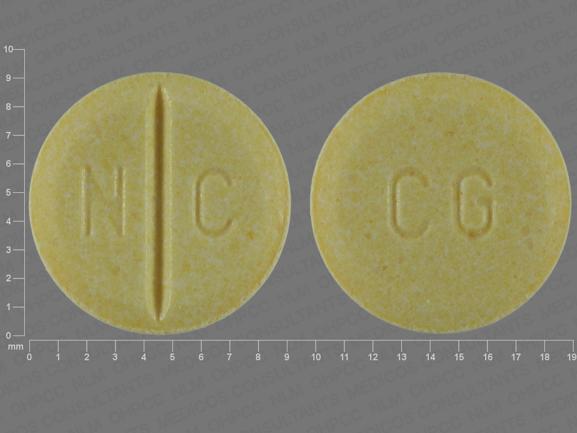Artemether / Lumefantrine Dosage
Medically reviewed by Drugs.com. Last updated on Aug 20, 2024.
Applies to the following strengths: 20 mg-120 mg
Usual Adult Dose for:
Usual Pediatric Dose for:
Additional dosage information:
Usual Adult Dose for Malaria
Less than 35 kg: Usual pediatric dose
At least 35 kg: 4 tablets orally as a single initial dose, followed by 4 tablets after 8 hours, and then 4 tablets twice a day (morning and evening) for the following 2 days
- Total course: 24 tablets
Comments:
- A 3-day treatment regimen, with a total of 6 doses
Use: For the treatment of acute uncomplicated malaria infections due to Plasmodium falciparum
Usual Pediatric Dose for Malaria
2 months or older:
- Weight 5 to less than 15 kg: 1 tablet orally as a single initial dose, followed by 1 tablet after 8 hours, and then 1 tablet twice a day (morning and evening) for the following 2 days
- Total course: 6 tablets
- Weight 15 to less than 25 kg: 2 tablets orally as a single initial dose, followed by 2 tablets after 8 hours, and then 2 tablets twice a day (morning and evening) for the following 2 days
- Total course: 12 tablets
- Weight 25 to less than 35 kg: 3 tablets orally as a single initial dose, followed by 3 tablets after 8 hours, and then 3 tablets twice a day (morning and evening) for the following 2 days
- Total course: 18 tablets
- Weight At least 35 kg: 4 tablets orally as a single initial dose, followed by 4 tablets after 8 hours, and then 4 tablets twice a day (morning and evening) for the following 2 days
- Total course: 24 tablets
Comments:
- A 3-day treatment regimen, with a total of 6 doses
Use: For the treatment of acute uncomplicated malaria infections due to P falciparum
Renal Dose Adjustments
Renal dysfunction: No adjustment recommended.
- Severe renal dysfunction: Caution recommended.
Liver Dose Adjustments
Mild to moderate liver dysfunction: No adjustment recommended.
Severe liver dysfunction: Caution recommended.
Precautions
CONTRAINDICATIONS:
- Known hypersensitivity to either active component or to any of the ingredients
- Coadministration with strong CYP450 3A4 inducers (e.g., rifampin, carbamazepine, phenytoin, St. John's wort)
Safety and efficacy have not been established in patients younger than 2 months or who weigh less than 5 kg.
Consult WARNINGS section for additional precautions.
Dialysis
Data not available
Other Comments
Administration advice:
- Administer with food; although patients with acute malaria are often averse to food, encourage patients to resume normal eating as soon as food can be tolerated as this improves absorption of each component.
- For patients unable to swallow the tablets (e.g., infants, children), crush tablet(s) and mix with a small amount of water (1 to 2 teaspoons) in a clean container for administration immediately prior to use; rinse the container with more water and swallow the contents; whenever possible, follow this crushed tablet preparation with food/drink (e.g., milk, formula, pudding, broth, porridge).
- If vomiting occurs within 1 to 2 hours after dosing, administer a repeat dose; if the repeat dose is vomited, use an alternative antimalarial for treatment.
Storage requirements:
- Store at 20C to 25C (68F to 77F); excursions permitted to 15C to 30C (59F to 86F).
General:
- Limitations of Use: This drug is not approved for patients with severe or complicated P falciparum malaria; this drug is not approved for prevention of malaria.
- This drug has shown efficacy in geographical regions where chloroquine resistance has occurred.
Monitoring:
- Cardiovascular: ECG in patients using medically-required drugs that prolong QT interval
Patient advice:
- Read the US FDA-approved patient labeling (Patient Information).
- Take with food.
- Notify physician if any symptoms of QT interval prolongation (including prolonged heart palpitations, loss of consciousness) occur.
- If using hormonal contraceptive, use an alternative nonhormonal contraceptive method or add a barrier method of contraception during therapy.
- Stop this drug at first sign of skin rash, hives/other skin reactions, rapid heartbeat, difficult swallowing/breathing, any swelling suggesting angioedema (e.g., swelling of lips/tongue/face, tightness of throat, hoarseness), or other symptoms of allergic reaction.
More about artemether / lumefantrine
- Check interactions
- Compare alternatives
- Reviews (11)
- Side effects
- During pregnancy
- Drug class: antimalarial combinations
- En español
Patient resources
Other brands
Professional resources
Other brands
Related treatment guides
Further information
Always consult your healthcare provider to ensure the information displayed on this page applies to your personal circumstances.


